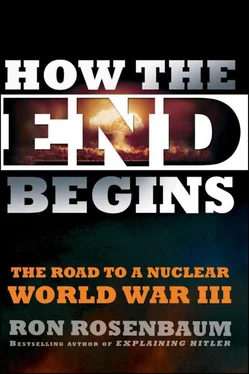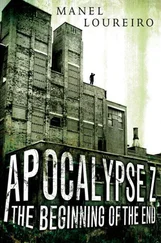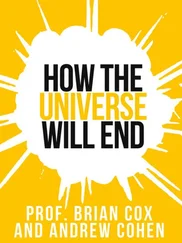And yet there has been no effort to prosecute the incessant incitement to genocide—to a second Holocaust—of the Jewish people. No one outside Israel, and the U.S. has suggested that any of the Iranian leadership, or the leaders of Hamas, be prosecuted under international law for incitement to genocide. Nor have their governments been called to account for it. A “Referral of Iranian President Ahmadinejad on the Charge of Incitement to Commit Genocide,” [211]prepared by the Israeli jurist Justus Reid Weiner in 2006, lays out the case for any who care. Not many seem to. These are people who are more forthright in calling for extermination than Adolf Hitler was, and yet the murderous incitement that issues from their mouths is not taken seriously by the world. Israelis and Jews should accommodate themselves to this international call for extermination even when it appears in elementary school textbooks in their neighboring nations. It shouldn’t be an obstacle to the “peace process” for God’s sake. It certainly shouldn’t be cause for Israel to take action against the weapons that would enable the fulfillment of this genocidal vision, should it?
All this will make it more likely that—sooner or later—Israel will unleash nuclear weapons, risk inaugurating World War III—to prevent what they perceive as an impending nuclear strike. Israelis will not wait for the world to step in. They may not even wait to be sure their intelligence on the strike they wish to preempt is rock-solid certain. They can’t afford to take that chance. It is not something I advocate; it is something I forsee.
In 1981, Israel Air Force F-16s attacked and destroyed the Iraqi nuclear reactor at Osirak near Baghdad—a reactor capable of producing weapons-grade plutonium from spent fuel rods near Baghdad. Most of the world outside Israel condemned the attack. When Prime Minister Menachem Begin explained his decision afterward, he said, “We have to defend our nation, after one and a half million of our children were exterminated by the Nazis in the gas chambers in the Second World War.” Begin, “who had escaped the Nazi invasion of Poland in September 1939, arrived in Palestine three years later…. In his six years as prime minister, he never ceased feeling that it was his personal mission to ensure that a second Holocaust never took place,” wrote Anshel Pfeffer of Israel’s Ha’aretz . [212]“When Begin sent the Israel Defense Forces into Lebanon to drive out the Palestine Liberation Organization he likened PLO leader Yasser Arafat to ‘Hitler in his bunker.’” [213]
Twenty-five years later, Benjamin Netanyahu, despite belonging to a different generation, used a stark historical analogy to describe the Iranian threat to Israel: “It is 1938 and Iran is Germany. And Iran is racing to arm itself with atomic bombs.” [214]
Even Shimon Peres, long regarded as the preeminent dovish Israeli statesman and its prime minister from 1986 to 1988, said in May 2009: “History teaches us that overreaction is preferable to under-reaction.” He was virtually declaring that he prefers an Israeli preemptive first strike, even nuclear, even if it’s an overreaction, to the wait-and-hope passivity of under-reaction that enabled Hitler’s Holocaust to reap so many victims.
Would the overreaction have an element of displaced vengeance for Hitler’s Holocaust? In other words, might there be an element of retaliation for the first Holocaust in an Israeli nuclear preemption ostensibly to prevent a second? It is only speculation, impossible to read the minds of those who will give the orders. But it wouldn’t surprise me. The contemporary Middle East is a Hitler dream come true. The Jews have been compelled by the Holocaust and history to, in effect, round themselves up and may feel compelled by history to inflict an attack with genocidal consequences on others that could well precede a second one for them. Yes, it’s an emotional factor, but as they say, feelings are facts. Hitler’s Holocaust has shaped Israeli awareness of history, and the implications of the past failure to take Hitler’s exterminationist rhetoric seriously will affect Israelis current reaction—or overreaction—to the exterminationist rhetoric and the real threats that rain down on their sliver of land. The very secondness of the second Holocaust carries with it a temptation to abandon all thoughts of proportionality in retaliation, and to punish the whole world for allowing not one but two slaughters of a people.
Abandonment of proportionality is the essence of the so-called Samson Option in all its variants. A Samson Option is made possible by the fact that even if Israel has been obliterated, it can be sure that its Dolphin-class nuclear missile submarines cruising the Red Sea, the Indian Ocean, and the Persian Gulf, at depths impervious to detection, can carry out a genocidal-scaled retaliation virtually anywhere in the world.
It is probably unnecessary to recall the origin of the phrase: Samson’s suicidal dying act in the Bible was to pull down the pillars of the Philistine temple around him and kill all those inside including himself. The extreme version of the Samson option presupposes a rage on the part of post–second Holocaust survivors in possession of nuclear weapons determined to reduce the entire temple of civilization to ashes for having complacently allowed two Holocausts to be inflicted on one people.
It is useful to remember that even if Israel strikes first for good reason or bad intelligence, there is no assurance that such action would guarantee prevention of an anticipated nuclear strike. The Washington-based Center for Strategic and International Studies’s most recent study of a possible nonnunclear Israeli attack on Iranian nuclear facilities [215]—a one-hundred-page analysis of every plane, missile, weapon, every flight path potential, every estimate of wind-dependent radiation damage—does not give the reader confidence that any nonnuclear strike has more than a 50–50 chance of succeeding, which strongly suggests nuclear strikes at the outset are the only guarantee of success. This is something that must be known to the Israelis but which they may be compelled to gamble their existence on.
Think of it this way: Hitler’s Holocaust, the first, increases the likelihood of a second Holocaust by causing the concentration of survivors and refugees in Israel thus making a one- or two-bomb attack genocidal. And Israel, seeking to prevent a second Holocaust, launches a preemptive nuclear strike whose consequences for both sides is genocidal.
And the victim of a second Holocaust is likely to have the weapons or the allies to inflict a third on the party that struck first, and, they, for all we know, could unleash a fourth against the party that struck them until it all goes global and there’s no one left to kill.
At a certain point what we will have is a chain reaction of lowercase holocausts, perhaps enough to escalate to the global level, certain to put a smile on Hitler’s face in hell. Hitler’s nuclear chain reaction.
Would there have been a bomb at all without that fear of Hitler? When Leo Szilard got Einstein to persuade FDR to build a bomb, the argument was that if we didn’t move fast Hitler would have a war-winning one first. It has never been clear whether Hitler’s scientists had been tasked with making such a weapon, or if they had been, that they had made any significant progress by 1939 when Einstein wrote his letter. The Manhattan Project was an early instance of the exorbitant effects of the ambiguities of warning in nuclear affairs that Thomas Powers has explored in his study of the German bomb question, Heisenberg’s War. [216]It would be the ultimate irony if the atomic bomb was only invented because of misplaced fears Hitler might get one. A bomb that might ultimately nonetheless serve to finish off Hitler’s Final Solution if detonated in Israel.
Читать дальше











